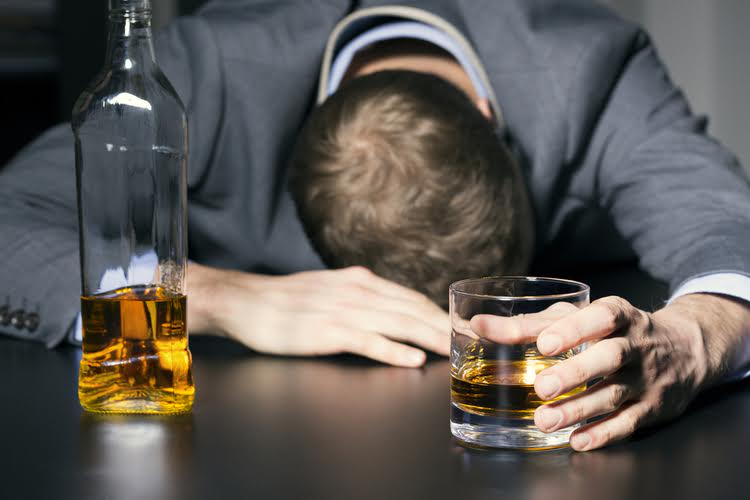Content
Depressant, and can cause anxiety or depression to worsen after its initial effects wear off. As you consume more and more alcohol, you may feel your mood worsening and your anxiety skyrocketing. Even as quarantine restrictions lessen, we’re still navigating the stressors and impacts of the pandemic. Join a judgment-free discussion about how to moderate your drinking or stay sober post-quarantine. Over 85% of Americans have tried alcohol at least once in their lifetime, most people aren’t aware of how ‘getting drunk’ actually works.

That is why you might be able to feel the effects of drinking without ever taking a sip. Some changes in your mood might include an increased feeling of happiness, giddiness, or excitement. Alternatively, your mood might grow darker, and you could experience feelings of loneliness or anxiety. Because of the brain’s dependence on alcohol, it can be difficult and painful to try and get sober on your own.
Beer vs. Soda: Is Beer Healthier Than Soda?
It is impossible to judge how drunk a person will be or feel based on alcohol consumption alone. Alcohol tolerance can affect the extent to which a person feels intoxicated. People who frequently drink may feel less drunk than those who do not. People with alcohol use disorder may not feel drunk at all, even when their BAC is very high. Over time, excessive alcohol use can cause liver health problems such as cirrhosis. Chronic drinking can even cause dementia by causing a dangerous vitamin B-1 deficiency.
Whether you stop drinking altogether or just practice asober curiouslifestyle, you’re likely to find your emotions are easier to regulate. Memory loss and other cognitive issues are other common side effects of alcohol misuse.Studies showthat the more a person drinks alcohol, the deeper the extent of their memory issues. An average night of heavy drinking is defined as five or more drinks for men and four or more drinks for women.
How Are Emotional Effects of Alcohol Explained?
Consequently, your blood alcohol concentration and alcohol’s effects will increase as acetaldehyde builds up in the liver. In addition, the fizzier the alcoholic beverage, the faster it will be absorbed. Drinks like soda mixes and champagne are easier to absorb than more concentrated drinks like gin and vodka. If you couple feeling of being drunk a fizzy alcoholic drink with drinking on an empty stomach, then the rate of absorption will increase further. Dopamine and serotonin releases give drinkers a feeling of pleasure, happiness, and confidence, making them less inhibited and social. There’s a reason why dopamine and serotonin are the body’s ‘feel-good’ hormones.
What can cause drunk like symptoms?
- diabetes;
- hypoglycemia;
- epilepsy;
- stroke;
- hypoxia from emphysema;
- hyper- or hypothermia;
- brain injuries;
- reactions to medications;
Endorphins, on the other hand, calm the body down, making us euphoric and relaxed. Alcohol is a big element of our social interactions so not drinking, or stopping drinking, is normally met with criticism or mockery, which we want to avoid, even at a subconscious level. If you’re allergic to alcohol, you’ve likely been pressured to have a drink anyway because “just one won’t hurt”, when it literally will. Via that logic, anything can count as a toxin (e.g. oxygen).
The Science Behind Alcohol and The Brain
Two of the organs most affected by unhealthy alcohol use are the liver and the brain. In very severe cases, alcohol consumption can lead to cirrhosis of the liver, which may necessitate a liver transplant and, in some cases, can lead to death. In the brain, alcohol is toxic to neurons, and can affect long-term cognitive processing. Alcohol affects the brain and every part of the body on a cellular level; and, in addition to being the most commonly abused drug, alcohol is probably the most dangerous drug. Disorientation, drowsiness, being detached from reality, and dizziness are some of the most common sensations you experience when you drink too much alcohol. The key when you’re drinking alcohol is moderation, both in terms of how often you indulge in a glass of wine or liquor, and how much of it you consume.

Symptoms in this stage include increased impairments to physical and reactionary skills necessary for driving, plus increased impairments to speech and attention, and balance and coordination. Women are impacted by alcohol differently than men, primarily due to their weight and body chemistry. In general, women weigh less than men, and weight affects how alcohol is metabolized. In addition, women typically have lower alcohol dehydrogenase levels, which is an enzyme that helps break down alcohol. Some of these changes are positive, and some you would probably rather avoid. Alcohol causes chemical reactions in the brain, and these reactions can also be caused by other activities.
What If You Could Feel Drunk Without Alcohol?
There are numerous possible short-term effects of drinking alcohol, many of which depend on the amount of alcohol consumed. If someone asked you what causes drunkenness, you would likely answer that it was obviously alcohol. While that’s correct, the most accurate answer is even more specific. Yes, it’s the alcohol, but more particularly, it’s the ethanol in the alcohol that leaves you feeling drunk and hungover. They might know the feeling of being drunk, but they don’t understand how alcohol interacts with the body and ultimately leads to buzzing or drunkenness.
